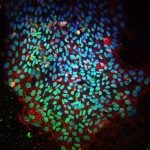Link to Pubmed [PMID] – 23718252
Ann Intensive Care 2013;3(1):15
Sepsis often is characterized by an acute brain dysfunction, which is associated with increased morbidity and mortality. Its pathophysiology is highly complex, resulting from both inflammatory and noninflammatory processes, which may induce significant alterations in vulnerable areas of the brain. Important mechanisms include excessive microglial activation, impaired cerebral perfusion, blood-brain-barrier dysfunction, and altered neurotransmission. Systemic insults, such as prolonged inflammation, severe hypoxemia, and persistent hyperglycemia also may contribute to aggravate sepsis-induced brain dysfunction or injury. The diagnosis of brain dysfunction in sepsis relies essentially on neurological examination and neurological tests, such as EEG and neuroimaging. A brain MRI should be considered in case of persistent brain dysfunction after control of sepsis and exclusion of major confounding factors. Recent MRI studies suggest that septic shock can be associated with acute cerebrovascular lesions and white matter abnormalities. Currently, the management of brain dysfunction mainly consists of control of sepsis and prevention of all aggravating factors, including metabolic disturbances, drug overdoses, anticholinergic medications, withdrawal syndromes, and Wernicke’s encephalopathy. Modulation of microglial activation, prevention of blood-brain-barrier alterations, and use of antioxidants represent relevant therapeutic targets that may impact significantly on neurologic outcomes. In the future, investigations in patients with sepsis should be undertaken to reduce the duration of brain dysfunction and to study the impact of this reduction on important health outcomes, including functional and cognitive status in survivors.




